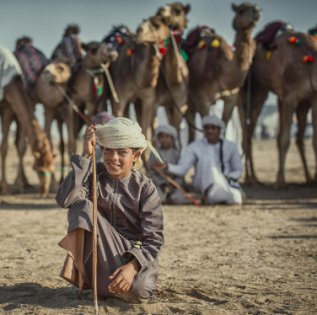|
Tunisia Profile |
Tunisia Profile |
Tunisia Profile | Tunisia Profile |

|
Former parliamentary speaker Fouad Mebazaa assumed the role of interim President with a promise of democratic elections within sixty days with Prime Minister Mohammed Ghannouchi being asked to form a temporary government. However within weeks, Ghannouchi was forced to resign bowing to pressure from protestors that Tunisia could only move forward if it made a clean break with the past. Tunisia adopted a new constitution in 2014, establishing a parliamentary republic and holding a series of free and fair elections. However Tunisia is not considered a stable country. While it has made strides towards democracy since the Arab Spring, it faces ongoing political instability, economic challenges, and a persistent threat of terrorism. President Kais Saied, elected in 2019, has consolidated power, weakening democratic institutions and raising concerns about human rights and the rule of law with arbitrary detentions, arrests, and restrictions on political activity. However, the Tunisian economy faces structural challenges. High unemployment rates, especially among youth and university graduates, regional disparities, and a large informal sector are persistent issues, along with high debt levels, slow economic growth, and rising inflation. Efforts to achieve economic stability involve promoting foreign investment, diversifying beyond traditional sectors into technology and innovation, reforming state-owned enterprises, and addressing the public debt. The government is also focused on improving the business climate and fostering entrepreneurship to create more job opportunities and ensure sustainable growth. Tunisian social profile is largely homogenous, with Arabic as the official language and Islam as the predominant religion. However, it also boasts a small but historically significant Amazigh minority and a diverse expatriate community. Family values are strong, and hospitality is a deeply ingrained cultural trait. Education is highly valued, with a high literacy rate (85.21%) and a robust public education system from primary school to university. Healthcare infrastructure is also relatively developed compared to many countries in the region. The rhythm of daily life in Tunisia blends traditional customs with modern influences. Cities like Tunis bustle with activity, featuring modern shopping malls alongside historic souks where artisans ply their trades. Cafes are central to social interaction, serving as gathering places for discussions, friendly banter, and enjoying strong coffee or mint tea. Public spaces, particularly along the coast, are popular for evening strolls and family outings. While Tunisians embrace global trends in fashion and entertainment, adherence to family and community values remains paramount. The ongoing pursuit of stability across the political and economic spheres directly impacts the quality of daily life, influencing everything from job prospects and purchasing power to public services and personal security. Tunisia, named after its capital Tunis, has a population of some 12.28 million (2025) and is in 105th place out of 193 countries and territories in 2025 in the Human Development Index (HDI), placing the country in the "high human development" category. In the African context, Tunisia is ranked around 4th or 5th, with Algeria and Egypt typically ranking slightly higher. According to the latest available figures from 2021, the official poverty rate in Tunisia is 20.70%, however this varies significantly across regions, with rural areas experiencing higher rates than urban areas, and some regions like the Center-West and North-West facing significantly higher poverty rates than coastal areas. |






 Tunisia's economic profile is characterized by a mix of sectors, including agriculture, mining, manufacturing, and a significant tourism industry. Its strategic location, proximity to Europe, and a relatively skilled workforce have historically been advantageous. Tourism, particularly coastal resorts and cultural tours, is a vital foreign exchange earner, though it has faced disruptions from regional security concerns (the border with Libya remains a source of instability with cross-border terrorist activity) and global events like the COVID-19 pandemic. Agriculture, particularly olive oil production, fruits, and vegetables, contributes significantly to exports. The manufacturing sector focuses on textiles, electronics, and automotive components, often leveraging foreign investment.
Tunisia's economic profile is characterized by a mix of sectors, including agriculture, mining, manufacturing, and a significant tourism industry. Its strategic location, proximity to Europe, and a relatively skilled workforce have historically been advantageous. Tourism, particularly coastal resorts and cultural tours, is a vital foreign exchange earner, though it has faced disruptions from regional security concerns (the border with Libya remains a source of instability with cross-border terrorist activity) and global events like the COVID-19 pandemic. Agriculture, particularly olive oil production, fruits, and vegetables, contributes significantly to exports. The manufacturing sector focuses on textiles, electronics, and automotive components, often leveraging foreign investment.


